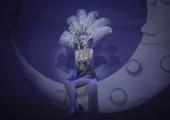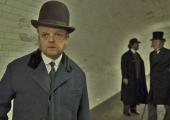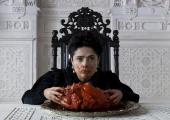Gruelling, gripping World War Two thriller
Let’s explain the peculiar title first: Operation Anthropoid was the code name given by the Czech Resistance for the planned assassination of Reinhard Heydrich in Prague during World War Two. The events have been portrayed on film before, a notable early example being Fritz Lang’s Hangmen Also Die (screenplay and score provided by "Bert" Brecht and Hanns Eisler). Lang took many liberties with the facts, whereas Sean Ellis’s 2016 film attempts to be scrupulously accurate. Heidrich was a repugnant, cold-blooded brute, sent to govern an occupied Czechoslovakia in 1941, his predecessor having been perceived as too lenient. Described by Hitler as “the man with the iron heart”, he was also the principal planner of the Final Solution.
Anthropoid begins, literally, with a bump, as two agents parachuted in by the Czech government-in-exile based in London crash into a wintry forest outside Prague. They’re played by Cillian Murphy and Jamie Dornan, and within minutes they’ve been found by a pair of informers, whose truck they steal and head to Prague. There they gingerly negotiate a locked down city before making contact with Toby Jones’ resistance leader and reveal their plans. It’s the stuff of nightmares: the pair have to stay inconspicuous while convincing others of the need to kill Heydrich, always aware that the consequences of doing so might be even more horrific. Which turns out to be the case: the assassination attempt, thrillingly staged, doesn’t quite go to plan, and the fugitives find themselves holed up in a cathedral crypt thanks to a sympathetic priest.
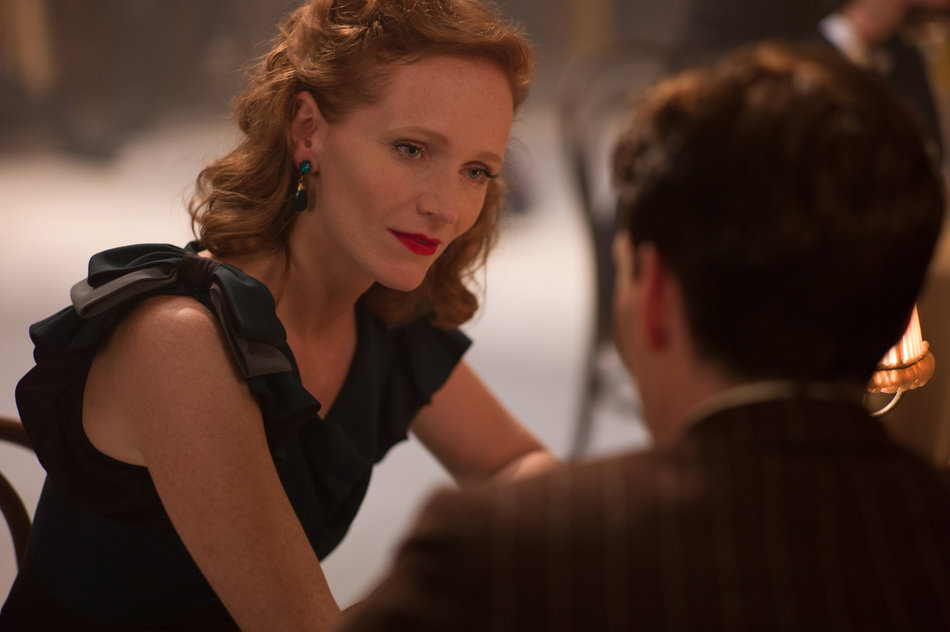 They’re soon aware that innocent civilians are already being shot in reprisals, and that an entire village has been razed based on misinformation. Naturally there’s a wretched Judas figure (a slippery Jiří Šimek) on hand to betray his associates. But faced with the chance to gain a hefty cash reward and save his family, his actions are wholly credible. The interrogation scenes are mercifully brief before the virtuosic final shoot out, in which the rebels ultimately drowned when the crypt is flooded with fire hoses. So far, so bad, and knowing that such events really happened is deeply affecting, as is the fact that a brave band of Czechs and Slovaks put their lives on the line for a country which no longer exists.
They’re soon aware that innocent civilians are already being shot in reprisals, and that an entire village has been razed based on misinformation. Naturally there’s a wretched Judas figure (a slippery Jiří Šimek) on hand to betray his associates. But faced with the chance to gain a hefty cash reward and save his family, his actions are wholly credible. The interrogation scenes are mercifully brief before the virtuosic final shoot out, in which the rebels ultimately drowned when the crypt is flooded with fire hoses. So far, so bad, and knowing that such events really happened is deeply affecting, as is the fact that a brave band of Czechs and Slovaks put their lives on the line for a country which no longer exists.
To say that this film is technically impressive isn’t to damn it with faint praise; Ellis’s sure-footed direction and spare screenplay take us through this series of unfortunate events at a breakneck pace. Convincing sets and location footage really do conjure up a grey, wartime Prague, and how refreshing to encounter such a spare, economical soundtrack. That the actors all speak accented English is a distraction at first, but the performances are strong enough to overcome any doubts. Especially good support comes from a luminous Anna Geislerová (pictured above right) as Murphy’s love interest. Ellis is notably absent from the disc's bonus features – there’s no director’s commentary, but a "Making Of" short suggests that cast and crew enjoyed working with him.
Overleaf: watch the trailer for Anthropoid
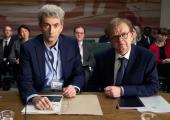

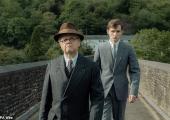




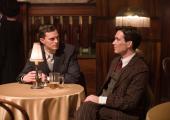
 They’re soon aware that innocent civilians are already being shot in reprisals, and that an entire village has been razed based on misinformation. Naturally there’s a wretched Judas figure (a slippery Jiří Šimek) on hand to betray his associates. But faced with the chance to gain a hefty cash reward and save his family, his actions are wholly credible. The interrogation scenes are mercifully brief before the virtuosic final shoot out, in which the rebels ultimately drowned when the crypt is flooded with fire hoses. So far, so bad, and knowing that such events really happened is deeply affecting, as is the fact that a brave band of Czechs and Slovaks put their lives on the line for a country which no longer exists.
They’re soon aware that innocent civilians are already being shot in reprisals, and that an entire village has been razed based on misinformation. Naturally there’s a wretched Judas figure (a slippery Jiří Šimek) on hand to betray his associates. But faced with the chance to gain a hefty cash reward and save his family, his actions are wholly credible. The interrogation scenes are mercifully brief before the virtuosic final shoot out, in which the rebels ultimately drowned when the crypt is flooded with fire hoses. So far, so bad, and knowing that such events really happened is deeply affecting, as is the fact that a brave band of Czechs and Slovaks put their lives on the line for a country which no longer exists.